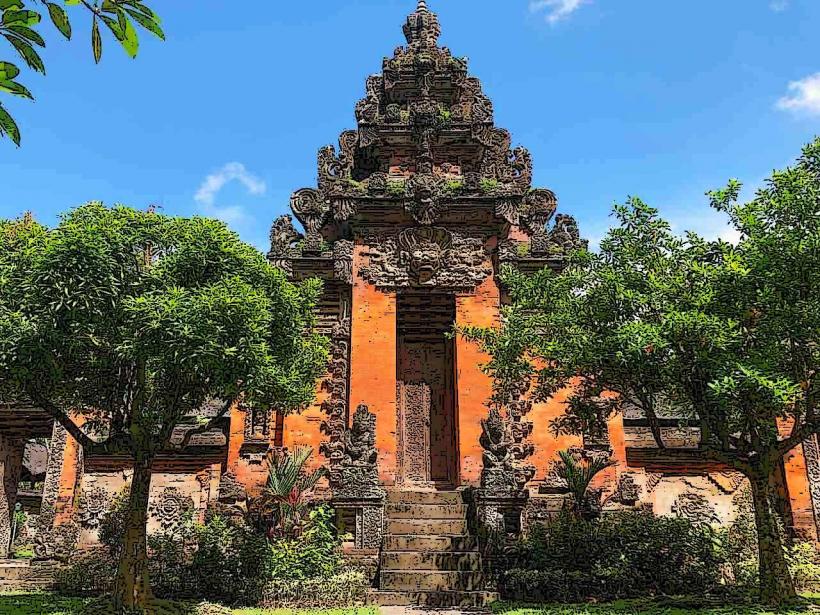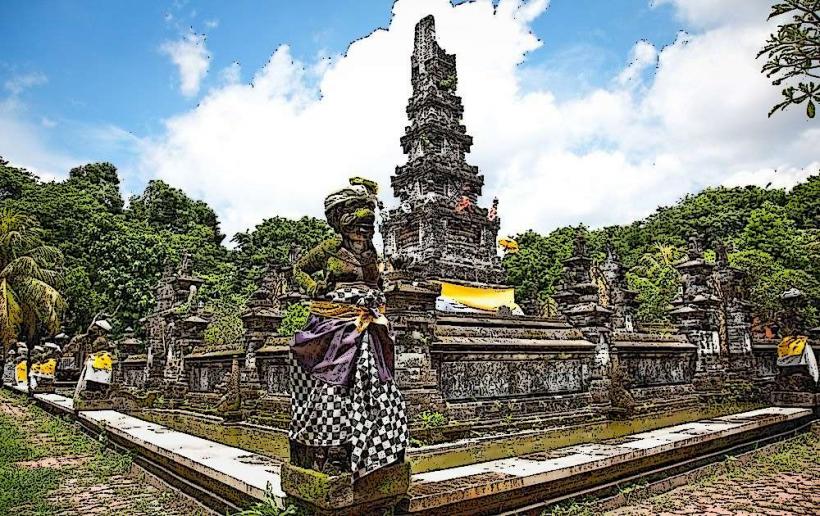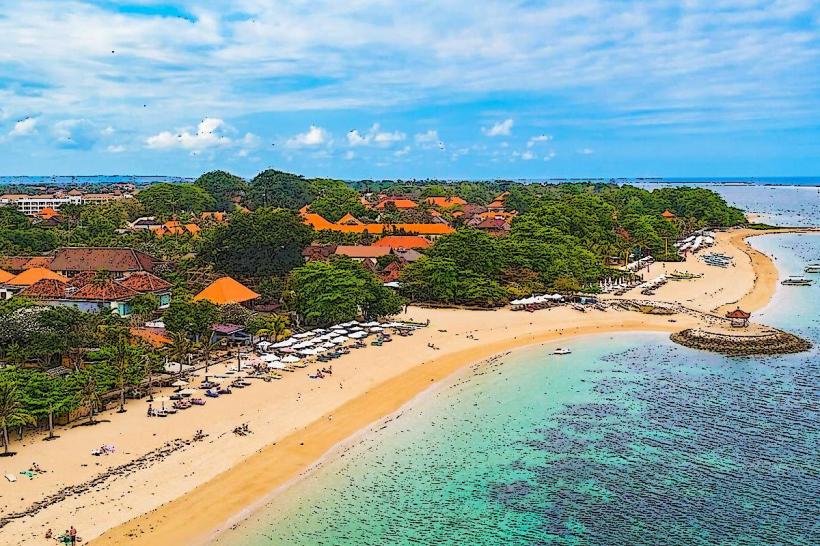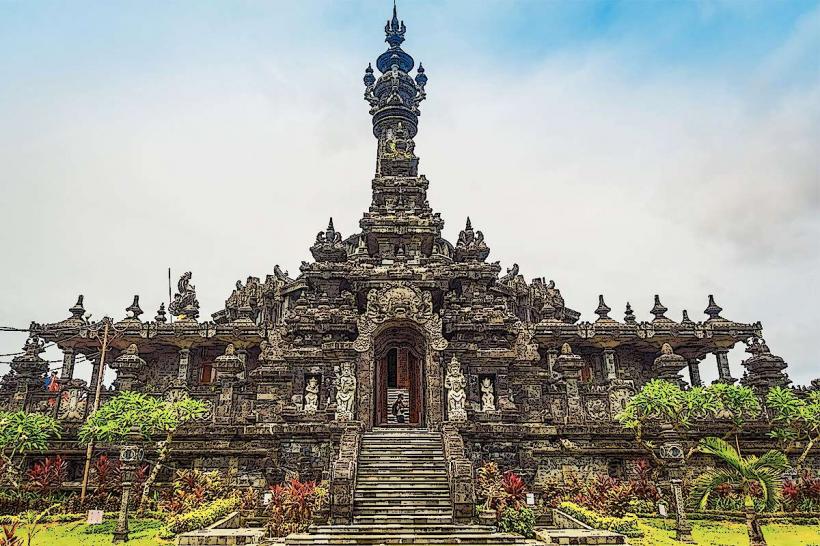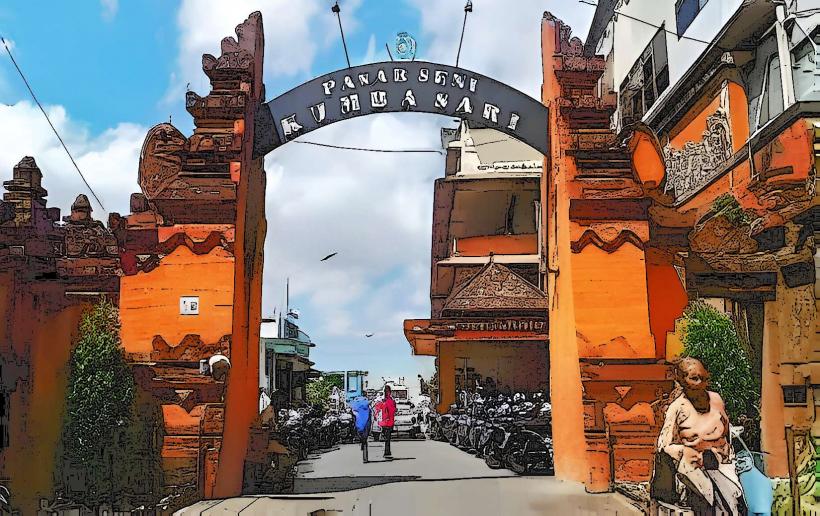Information
Landmark: Puputan Badung SquareCity: Denpasar
Country: Indonesia
Continent: Asia
Puputan Badung Square: A Historic Landmark in Denpasar, Bali
Puputan Badung Square (Lapangan Puputan Badung) is one of the most significant historical sites in Denpasar, the capital city of Bali, Indonesia. This square is not only a central gathering place in the city but also a symbol of Bali's historical struggles, particularly during the Puputan Badung, a major event in the island’s colonial history. The square is a focal point for local culture, offering insight into Bali’s past and a space for reflection on its rich history.
1. Historical Significance of Puputan Badung Square
Puputan Badung:
- The name Puputan refers to a Balinese tradition of heroic resistance, often associated with a final stand in the face of overwhelming odds, where warriors and defenders chose death over surrender. The Puputan Badung refers to the battle of 1906 in which the Balinese royals and their soldiers fought against the Dutch colonial forces.
- On September 20, 1906, the royal family of Badung (which ruled over the Denpasar region) chose to resist Dutch colonial expansion rather than submit to the Dutch authorities. The royal family, along with their soldiers and followers, made a heroic stand, which ultimately led to a mass suicide by the Balinese rulers as a form of protest. This tragic event, known as the Puputan Badung, marked a turning point in the Dutch colonization of Bali.
- The battle was significant because it demonstrated the Bali Kingdom’s defiance against colonial rule, even though it ended in the tragic loss of many lives, including that of the king, I Gusti Ngurah Made Agung.
Cultural Memory:
- Puputan Badung Square serves as a memorial to this heroic event, reminding the Balinese people of their rich history of resistance and pride. The square honors those who gave their lives for the defense of Bali and is a site of reflection on Bali’s struggle for independence.
2. Features of Puputan Badung Square
The Square:
- Puputan Badung Square is an open public space in the heart of Denpasar, surrounded by significant buildings and landmarks. The square is lined with palm trees and lush gardens, offering a peaceful environment in the bustling city center. It is often used for public events, ceremonies, and local gatherings, making it a hub for cultural life in Denpasar.
Monument to the Puputan Badung:
- At the center of the square stands a monument commemorating the Puputan Badung. The Puputan Monument features a large statue of a Balinese warrior, which symbolizes the bravery and spirit of the royal family and soldiers who fought in the battle. The monument is an iconic symbol of Balinese resistance and pride.
- The monument is surrounded by reliefs and inscriptions that provide information about the Puputan Badung, detailing the event and honoring those who sacrificed their lives.
Nearby Landmarks:
- The square is located near several other important buildings in Denpasar, including:
- Badung Market (Pasar Badung), one of the largest traditional markets in Bali, where visitors can experience the island’s vibrant market culture.
- City Hall of Denpasar, an architectural landmark reflecting the city's governance.
- Pura Jagatnatha, a significant Hindu temple located close to the square, dedicated to Sang Hyang Widhi Wasa, the Supreme God in Balinese Hinduism.
3. Cultural Role of Puputan Badung Square
Public Space for Events:
- Puputan Badung Square is a central location for public events, such as ceremonial processions, Independence Day celebrations, and other local festivals. It is a gathering space for locals and tourists alike, offering a chance to witness Balinese cultural practices in the heart of Denpasar.
Local Community and Gathering:
- The square is a popular spot for both locals and visitors to relax, enjoy the view of the monument, and engage in casual conversations. It also serves as a recreational area where people can enjoy the outdoors and spend time with friends and family.
Symbol of Resilience:
- Puputan Badung Square serves as a constant reminder of Bali’s resilience and pride in its cultural heritage. It stands as a place of commemoration, where Balinese people can honor their ancestors’ resistance against colonial powers and celebrate the island’s journey toward self-determination.
4. Visiting Puputan Badung Square
Best Time to Visit:
- The square is open to visitors year-round, and it can be visited at any time of day. For those interested in seeing the square in a lively setting, visiting during the daytime or during festivals provides a more dynamic experience. In the early morning or late afternoon, the square offers a more serene atmosphere for reflection.
Accessibility:
- Puputan Badung Square is located in central Denpasar, making it easily accessible from various parts of the city. Visitors can reach the square by car, motorcycle, or on foot, as it is situated near many local attractions.
Entrance:
- There is no entrance fee to visit Puputan Badung Square, as it is a public space. Visitors are welcome to explore the area, take photographs, and pay respects at the Puputan Monument.
Facilities:
- The square is equipped with basic facilities such as benches, paths, and shade trees to ensure a comfortable visit. Nearby, visitors can find cafes, shops, and other amenities where they can relax or enjoy local food.
5. Conclusion
Puputan Badung Square is much more than just a public square; it is a symbol of Bali’s history, embodying the island’s resilience and cultural pride. The square offers visitors a glimpse into the island’s past, commemorating the sacrifice of those who fought during the Puputan Badung and reinforcing Bali’s rich traditions of resistance against colonial rule. Whether as a place of reflection, commemoration, or public celebration, Puputan Badung Square is an essential landmark in Denpasar and a must-visit for anyone interested in Bali’s history and cultural identity.

